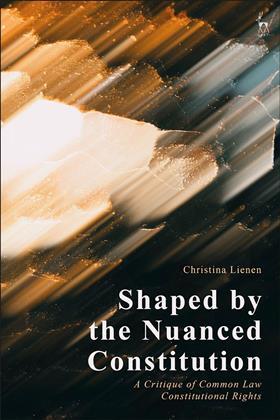Shaped by the Nuanced Constitution
Christina Lienen
£85, Bloomsbury
★★★★✩
The UK’s constitution has much in common with a bacterial flagellum.
Flagella are sophisticated little organs that rotate like outboard motors and allow organisms to move around. They are assembled from dozens of separate elements that originally had different functions and which have been co-opted to form part of the new system. Thus, the UK constitution, which represents numerous parts co-opted for new purposes. A repurposing of habeas corpus here, an extension of judicial distaste for ouster clauses there, and something new and apparently coherent emerges.
One consequence is a debate about the essential character of the constitution. Some commentators and judges argue it is a political constitution, whereby the sole restraint on parliament’s legislative power is the political consequences of its actions (the classic Diceyan position). Others argue it is a common law constitution, in which the courts, employing fundamental common law principles, can place substantive limits on parliament.

Lienen argues for a third way – which she calls ‘nuanced’ – which is created by judges ‘engaging with substantive arguments about values and interests which are given legal status at the same time as according a fundamental status, and often primacy, to legislation’. Analysing several Supreme Court cases, she claims the courts are increasingly acknowledging various common law constitutional rights. These include access to court, and open justice which, once recognised, require more intense scrutiny of any legislation that may adversely affect those rights, even – theoretically – to the point of disapplying the offending legislation. Crucially, however, parliament can, with express words, override any right, thus preserving parliamentary sovereignty.
Her argument is fascinating and occasionally compelling. However, I am unconvinced that ‘nuanced’ represents a new understanding of the constitution. For some time, courts have been willing to read legislation more restrictively where some key right is engaged. They may simply now be more open about it.
Her argument also ends, ultimately, with parliamentary sovereignty. No court has shown willingness to challenge sovereignty, notwithstanding the dicta of lords Steyn and Hope, and Baroness Hale in Jackson v Attorney General two decades ago. Absent a British Marbury v Madison, it is hard to see the constitution as anything other than political.
A great piece of work, even if it did not fully convince me. Good for general interest, and constitution obsessives.
James E Hurford is a solicitor at the Government Legal Department, London































No comments yet